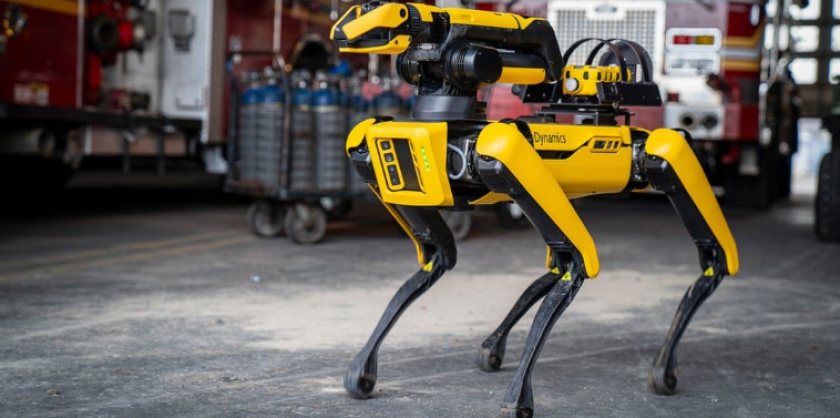Electric Vehicles
Coverage of electric vehicle (EV) policy and use by government and consumers in the United States as jurisdictions increasingly incorporate electric cars, buses and other vehicles into government fleets to help meet climate change goals. Includes stories about electric vehicle infrastructure and battery development, hybrid vehicles, electric scooters and bikes.
-
Nearly 250 electric vehicle chargers will be deployed citywide this year in a push to expand charging opportunities at work and for residents living in apartment buildings. They’re the result of a three-way partnership.
-
The city said it has impounded 38 electric scooters parked on sidewalks, and rental companies may face fees. Vendors questioned the timing but said they are working with officials and will follow the rules.
-
New fleet management technology for optimizing the use of electric vehicles crunches numerous variables related to battery performance, route, topography and temperature to get the most out of zero emissions.
More Stories
-
As part of an ongoing effort to reduce greenhouse gas, the city of Dallas leads the region with the largest electric fleet among North Texas cities, and now it’s hoping to transition further.
-
As states work to build electric vehicle charging infrastructure amid a federal funding freeze, the former leader of the Joint Office of Energy and Transportation urges leaders to keep showing their vision for the future.
-
Two bills now under consideration could change who gets to ride so-called electric-assisted bikes and similar conveyances. Some elected officials support letting kids as young as 12 ride e-bikes, with additional safety regulations.
-
The Golden State continues to advance policies and fund programs to position itself as a leader in advancing clean transportation. New York incentivizes the shift to electric vehicles and their infrastructure.
-
A new definition for the vehicles approved Tuesday by the City Council categorizes a class of the devices as nonmotorized but providing power by being pedaled. This will allow them onto some city properties, including parks.
-
A pilot project to introduce a shared electric scooter program in Eugene, Ore., eased the devices into the community, with considerable public outreach to address concerns around parking and cluttered sidewalks.
-
Since the manufacturer filed for bankruptcy, only a handful of Miami-Dade County’s 75 electric buses are in service, and none of Broward County’s fleet of 42 electric buses managed to run routes earlier this month.
-
A nearly 25,000-square-foot addition to the university's Transportation Research Institute will include three battery laboratories, auxiliary support areas, a substation and a facility for battery cell abuse testing.
-
States are beginning to offer such programs in a pay-as-you-go format, as an alternative to the flat fees attached to electric vehicle and other high miles-per-gallon cars that pay little or no gas taxes.
-
A private university in Michigan will use a gift from Windrose Technology to expand its sustainability initiatives, including hosting guest speakers, organizing conferences and fostering industry partnerships.
-
The Federal Highway Administration has announced plans to issue new guidance around the National Electric Vehicle Infrastructure (NEVI) Formula Program. For now, the move halts aspects of the initiative.
-
The city that has played a key role in the production of gasoline-powered vehicles is making plans to add the first electric vehicles to its municipal fleet and new charging stations for residents.
-
A new report details how opening Tesla’s Supercharger network to all electric vehicles could increase the total number of available charging ports, without requiring the development of new sites.
-
A carefully planned overhaul of bus fleets for St. Louis-area school districts is in limbo after an executive order from President Donald Trump paused previously allocated spending on clean energy initiatives.
-
The Pioneer Valley Transit Authority is looking to expand its headquarters ahead of a methodic conversion to electric buses. The move will facilitate consolidating maintenance and operations in one location.
-
President Trump has promised to roll back aspirational carbon emission regulations aiming to incentivize domestic EV production as well as detailed policy changes he wants to push through Congress.
-
Springfield, which has one of the highest rates of asthma in the U.S., will use a $6.6 million federal grant to start phasing out its fleet of 145 standard-size diesel buses in favor of electric ones.
-
A project to explore use of the small, electric vehicles could be paused by a recent federal memo. Its funding source is a grant from the U.S. Joint Office of Energy and Transportation.





























